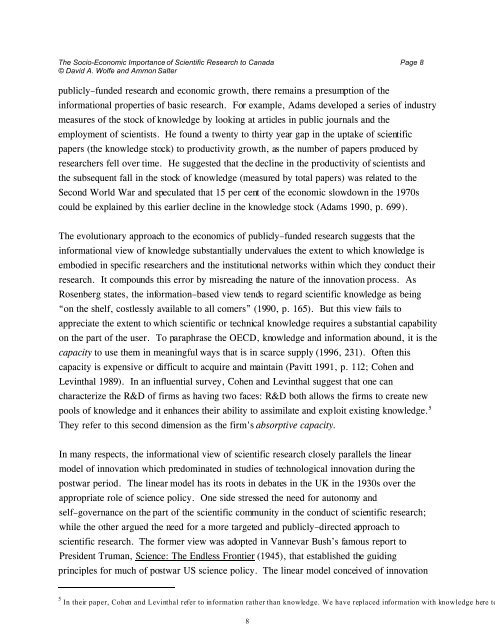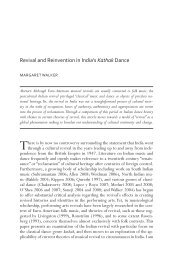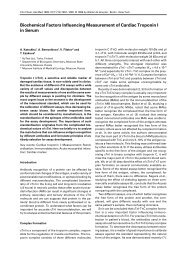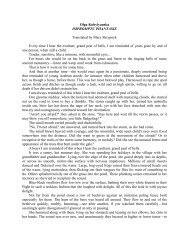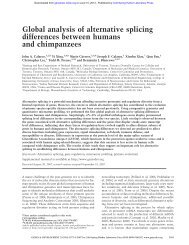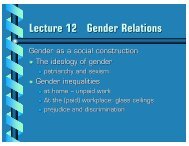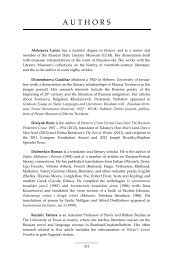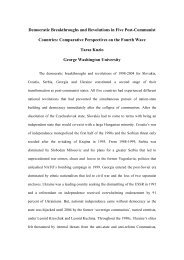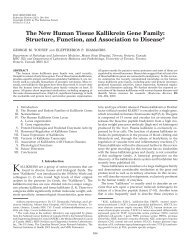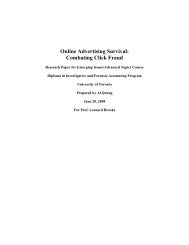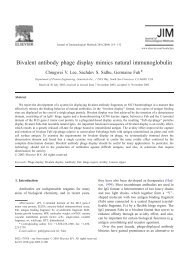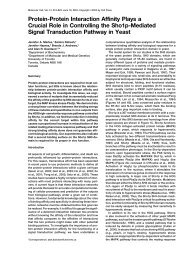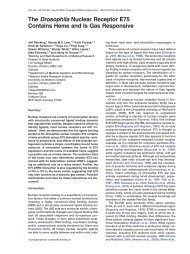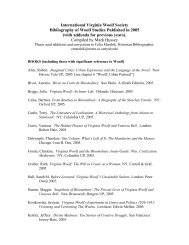The Socio-Economic Importance of Scientific Research To Canada
The Socio-Economic Importance of Scientific Research To Canada
The Socio-Economic Importance of Scientific Research To Canada
You also want an ePaper? Increase the reach of your titles
YUMPU automatically turns print PDFs into web optimized ePapers that Google loves.
<strong>The</strong> <strong>Socio</strong>-<strong>Economic</strong> <strong>Importance</strong> <strong>of</strong> <strong>Scientific</strong> <strong>Research</strong> to <strong>Canada</strong> Page 8© David A. Wolfe and Ammon Salterpublicly–funded research and economic growth, there remains a presumption <strong>of</strong> theinformational properties <strong>of</strong> basic research. For example, Adams developed a series <strong>of</strong> industrymeasures <strong>of</strong> the stock <strong>of</strong> knowledge by looking at articles in public journals and theemployment <strong>of</strong> scientists. He found a twenty to thirty year gap in the uptake <strong>of</strong> scientificpapers (the knowledge stock) to productivity growth, as the number <strong>of</strong> papers produced byresearchers fell over time. He suggested that the decline in the productivity <strong>of</strong> scientists andthe subsequent fall in the stock <strong>of</strong> knowledge (measured by total papers) was related to theSecond World War and speculated that 15 per cent <strong>of</strong> the economic slowdown in the 1970scould be explained by this earlier decline in the knowledge stock (Adams 1990, p. 699).<strong>The</strong> evolutionary approach to the economics <strong>of</strong> publicly–funded research suggests that theinformational view <strong>of</strong> knowledge substantially undervalues the extent to which knowledge isembodied in specific researchers and the institutional networks within which they conduct theirresearch. It compounds this error by misreading the nature <strong>of</strong> the innovation process. AsRosenberg states, the information–based view tends to regard scientific knowledge as being“on the shelf, costlessly available to all comers” (1990, p. 165). But this view fails toappreciate the extent to which scientific or technical knowledge requires a substantial capabilityon the part <strong>of</strong> the user. <strong>To</strong> paraphrase the OECD, knowledge and information abound, it is thecapacity to use them in meaningful ways that is in scarce supply (1996, 231). Often thiscapacity is expensive or difficult to acquire and maintain (Pavitt 1991, p. 112; Cohen andLevinthal 1989). In an influential survey, Cohen and Levinthal suggest that one cancharacterize the R&D <strong>of</strong> firms as having two faces: R&D both allows the firms to create newpools <strong>of</strong> knowledge and it enhances their ability to assimilate and exploit existing knowledge. 5<strong>The</strong>y refer to this second dimension as the firm's absorptive capacity.In many respects, the informational view <strong>of</strong> scientific research closely parallels the linearmodel <strong>of</strong> innovation which predominated in studies <strong>of</strong> technological innovation during thepostwar period. <strong>The</strong> linear model has its roots in debates in the UK in the 1930s over theappropriate role <strong>of</strong> science policy. One side stressed the need for autonomy andself–governance on the part <strong>of</strong> the scientific community in the conduct <strong>of</strong> scientific research;while the other argued the need for a more targeted and publicly–directed approach toscientific research. <strong>The</strong> former view was adopted in Vannevar Bush’s famous report toPresident Truman, Science: <strong>The</strong> Endless Frontier (1945), that established the guidingprinciples for much <strong>of</strong> postwar US science policy. <strong>The</strong> linear model conceived <strong>of</strong> innovation5 In their paper, Cohen and Levinthal refer to information rather than knowledge. We have replaced information with knowledge here to8


